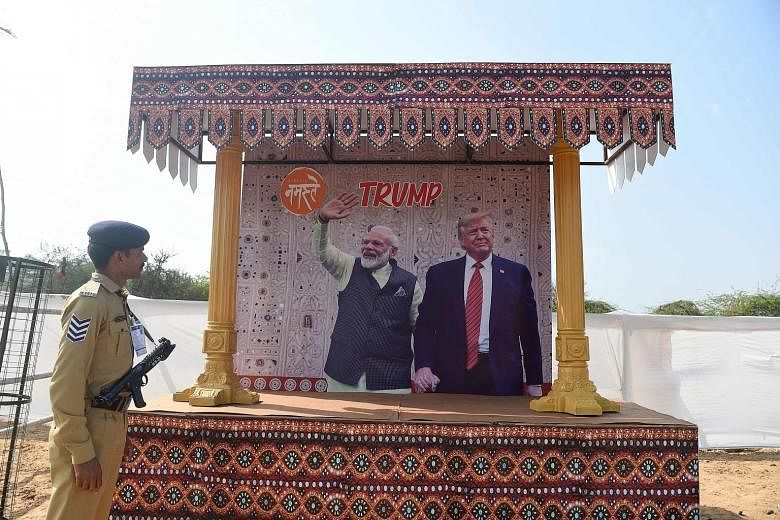India has avoided being drawn into the US and China power rivalry even as it seeks to keep ties with Beijing stable amid border skirmishes and other run-ins.
Ties with the United States, on the other hand, have been less complicated, remaining on an upward trajectory amid the pandemic.
China and India have an undemarcated border with disputes along several parts. The two countries decided to delink border problems from the rest of the relationship, but skirmishes often erupt, straining ties. Indian and Chinese soldiers have been involved in incidents in Ladakh and Sikkim.
India has chosen to downplay the incidents, calling them an outcome of an undemarcated border.
Other runs-ins include over Chinese-made rapid antibody coronavirus test kits that the Indian authorities termed faulty.
Another issue is India's new rule making foreign investment from countries sharing a border with it subject to government approval. Approval was automatic previously and the change was seen as an effort to prevent the takeover of Indian entities by Chinese firms at a time of economic stress. Beijing responded strongly on both issues, accusing the Indian authorities of mishandling the test kits and denouncing the new foreign direct investment rules as discriminatory.
Still, the Indian government has preferred not to escalate matters or criticise China for its handling of the pandemic as it tries to prevent any deterioration in ties with Beijing at a time of great economic uncertainty.
However, outside of government, a backlash is visible.
"There is a desperate effort on the part of China to erase its culpability in unleashing Covid-19 across the world through the lack of transparency inherent in its one-party authoritarian system," wrote former foreign secretary Shyam Saran in the Indian Express newspaper.
India and China have a particularly complicated relationship. China is India's largest trading partner with bilateral trade hitting US$92.68 billion (S$132 billion) in 2019, but tensions remain over Beijing's growing influence in India's neighbourhood and the Indian Ocean Region.
This is seen as a reason for India drawing closer to the US. Ties have strengthened on the back of strong cooperation in several areas, particularly defence, as New Delhi seeks to boost its military capabilities.
Prime Minister Narendra Modi's decision to supply Covid medication hydroxychloroquine to the US, in spite of a threat by US President Donald Trump, underlines the importance of ties.
Though India has stressed that it does not believe in a containment policy against any country, it is very much a part of the Quadrilateral dialogue consisting of the US, Australia and Japan, a grouping viewed suspiciously by China.
Dr Rajeswari Pillai Rajagopalan at Delhi think-tank Observer Research Foundation notes: "Between the US and India, there has been continuous collaboration. There is regular engagement (between the governments). But we haven't had such conversations with the Chinese leadership. I believe the government plans to talk."
She adds: "India chooses most of the time to sit on the fence and not escalate."
New Delhi has also maintained silence amid recent Chinese moves in the South China Sea.
But one area it will need to take a stand on is whether to allow Taiwan to attend the World Health Assembly, a forum that guides the World Health Organisation policy, as an observer - a move opposed by China but supported by the US, Japan and the United Kingdom, among others. India has ties with Taiwan even though it has backed the one China policy.
Some believe India, which is marking 70 years of diplomatic ties with China, will react differently to each issue. "It (India's response) will be compartmentalised, keeping in view bilateral issues. India won't want to be seen as negative," says Professor Srikanth Kondapalli, a professor in Chinese studies at Jawaharlal Nehru University. "Of course, India is not satisfied with the Chinese position. We are the ones who will suffer with the problems facing the economy."











